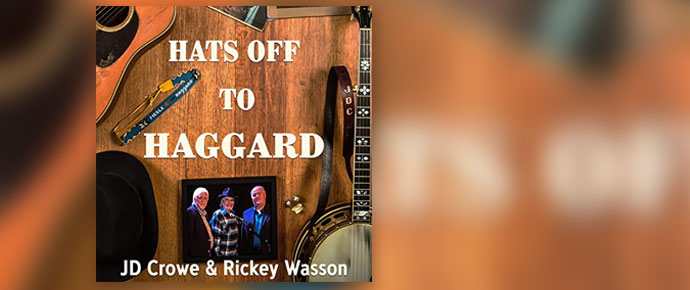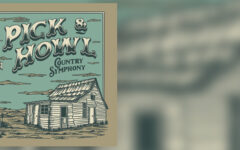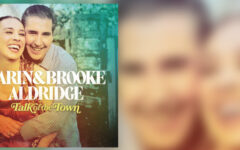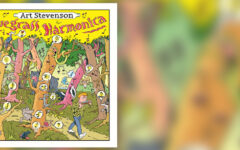
There are many country artists whose songs and style have impacted bluegrass music throughout the years, but perhaps none more than Merle Haggard. These days, it’s rare to find a bluegrass band – especially those in the more neo-traditional, hard-driving vein – who don’t include a Haggard song at least once in their set. Haggard’s plainspoken lyrics speak to the struggles and every day life of the working man, topics bluegrass music has long embraced. One of bluegrass’s biggest Haggard fans has long been J.D. Crowe, whose recent collaboration with his former New South lead vocalist Rickey Wasson is a tribute to the man himself.
Hats off to Haggard had been in the works for several years before its release last fall. Wasson and Crowe worked to bring together a who’s-who of bluegrass pickers (Dan Tyminski, Stuart Duncan, Alison Krauss, Mark Fain, etc.) for the album, and were even able to snag Haggard for a guest vocal shortly before his death in 2016. The album includes twelve of Wasson and Crowe’s favorite Haggard numbers, ranging from the well-known (Big City, Ramblin’ Fever), to a few that are a little more obscure. Fair warning to purists – there are drums here, from noted Nashville session musician Harry Stinson. However, as is so often found in modern traditional bluegrass today, they’re very tastefully done to help provide rhythm, and they let the music strike a nice balance between bluegrass and classic country.
Even if you’re not necessarily a Haggard fan (and if you’re not, you should be), most fans of modern traditional bluegrass should find Hats off to Haggard an enjoyable album. By and large, it’s a Rickey Wasson album. Carried by his smooth, country-style vocals, the songs would easily sound at home on one of his previous albums or live shows, with just a bit more country flair than normal. The album’s lead single, Kentucky Gambler (actually written by Dolly Parton and taken to #1 by Haggard in the seventies), spent quite a bit of time on the Bluegrass Today charts back in the winter and spring, and several other numbers have made chart appearances, as well.
Kentucky Gambler, a good lonesome leavin’ number sung with appropriate regret by Wasson, is definitely one of the highlights here. It pairs nicely with California Cotton Fields, the tale of a migrant family during the Great Depression who don’t find the happy ending they hoped for out west in California: “California cotton fields, where labor camps were filled with worried men with broken dreams.” Hungry Eyes follows in the same lyrical vein, though the bouncing banjo turns somber here, accompanied by gentle mandolin, guitar, and fiddle. Wasson’s earnest vocal performance makes this one of the album’s best songs.
One of my personal favorites is Old Man from the Mountain, an up-tempo number full of swagger that finds the singer warning his potentially cheating wife that he “don’t need no friendly Henry’s warming up my bed.” The raucous banjo and fiddle here are a fine substitute for Haggard’s horn section on the original. Another favorite is Living with the Shades Pulled Down – another song that takes a bit of swagger to sing. Haggard takes the lead vocal on this one, sounding in fine form. Also of note, particularly for how well it captures the spirit (and guitar licks) of the original, is Daddy Frank. It’s also one of Wasson’s best vocals on the album.
Hats off to Haggard was an excellent idea that is executed in fine fashion by Wasson, Crowe, and company. Wasson has been one of the most underrated lead vocalists in bluegrass music for a long time. Hopefully this album will help remind listeners just how good he is.







